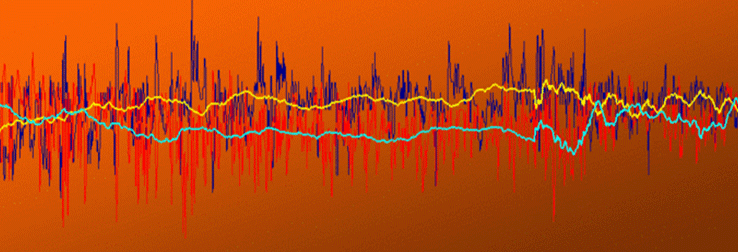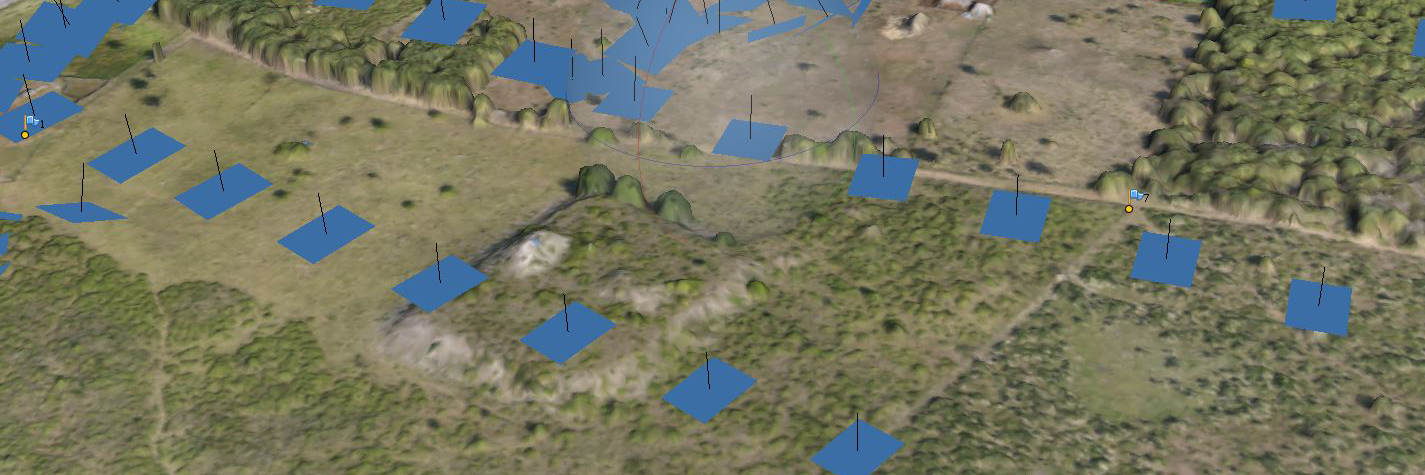
Audio Virtual Reality Project
Description:This project focuses on establishing virtual reality gaming environments for the visually impaired community. SIF fellows are developing a virtual reality environment for the Oculus Rift that utilizes audible cues and gaming scripts, allowing users to experience virtual worlds without relying on sight. Our demo game will include menus, an active game where the player will learn the game environment, and a passive game where the player will be tested on their knowledge of the game’s settings and objects. For an early demo, click here.
Contact:
Glenn Gunhouse

Online Deliberation Mapping Tool
Description: This project is designed to provide instructors and students with a tool to curate, monitor and administer asynchronous student-created deliberations online. Similar to already available tools such as debategraph.org and AGORA, our application gives users the ability to agree, disagree and question posts made during a deliberation process. It also allows users to analyze the development of deliberations using time sliders to show how these deliberations have developed over time. This team’s goal is to create a stable online environment for classroom use based on deliberation activities.
Contact:
Justin Lonsbury
Executive Approval Database
Description: SIF fellows are helping Dr. Ryan Carlin automate data collection practices for the executive approval database he has been compiling in the course of the last years and develop a browser-based platform so that researchers will be able to access and use his data for various research purposes. The project is based on gathering approval data from polling agencies regarding Latin American political leaders. By automating most of the data collection, the goal is then to move beyond the Latin American context and look at other continents.
Contact:
Thomas Breideband

Latin American Branding
Description: This project, proposed by Dr. Fernández-L’Hoeste, Director of the Center for Latin American and Latino/a Studies at the Modern and Classical Languages Department, involves gathering data from Twitter and Facebook to analyze emerging practices of nation branding on social media by countries in Latin America. Countries in that region have recently started to invest more heavily in branding themselves online. SIF fellows are developing algorithms to conduct keyword searches on Twitter and Facebook to collect the raw data, which will also include meta information such as hashtags, time stamps, geo-location of a tweet, number of shares, likes, mentions, etc., and to write grant proposals funding future work on the project.
Contact:
Thomas Breideband
PAST PROJECTS:
Aerial Mapping
Description: Combining expertise with Robotics well as High End computing resources available in CURVE, Student Innovation Fellows were able to perform multiple 3d scene reconstructions at a landscape scale. By combining thousands of aerial images captured by Unmanned Aerial Systems in 3D “Structure From Motion” or SfM software, Student Innovation Fellows are able to generate Point Clouds, Digital Elevation Models and Meshes in incredible detail. These reconstructions have applications in Archaeology, Geosciences and Historic Preservation.
Contact:
Katie Price
Jeffrey Glover
Tobacco Ebook
Description: The School of Public Health, using the Tobacco Centers of Regulatory Science grant, asked the SIF team to make an Ebook of their book on the effects of tobacco. The book is titled Principles of Tobacco Control: Extinguishing the Habit. Much of the work the Tobacco Ebook team is doing is layout and design using iBooks Author and Tableau. Using Tableau, the team is able to take the data provided and recreate charts and graphs that include custom color palates, consistent visuals, so that the visuals are not previously copyrighted materials, but are beautiful and well designed. The team is pushing Tableau to its limits from a graphic design standpoint to accomplish visual requirements. When Tableau doesn’t do the job, they use Adobe Illustrator, or other software to make infographics.



